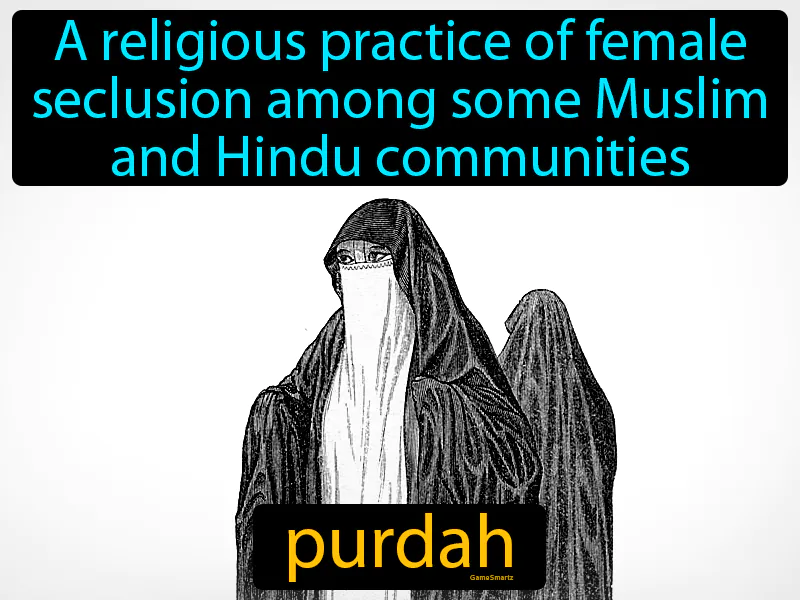Purdah
Purdah:
During the period of The New Imperialism (1800-1915), purdah was significant as a practice that marked cultural and religious identity among some Muslim and Hindu communities under colonial rule. It responded to the desire to preserve cultural traditions and maintain social order in the face of Western influences and changing societal norms. By ensuring female seclusion, purdah aimed to protect women's honor and family reputation. Today, purdah still matters as it represents ongoing discussions about women's rights, freedom, and cultural identity. For example, a young woman might choose to practice purdah as a personal expression of faith and tradition, highlighting the balance between personal choice and cultural expectations in modern society.

Practice Version

Purdah: A religious practice of female seclusion among some Muslim and Hindu communities. purdah. Purdah is the historical practice of women staying out of sight from men or strangers, often by wearing veils or staying in secluded areas.
